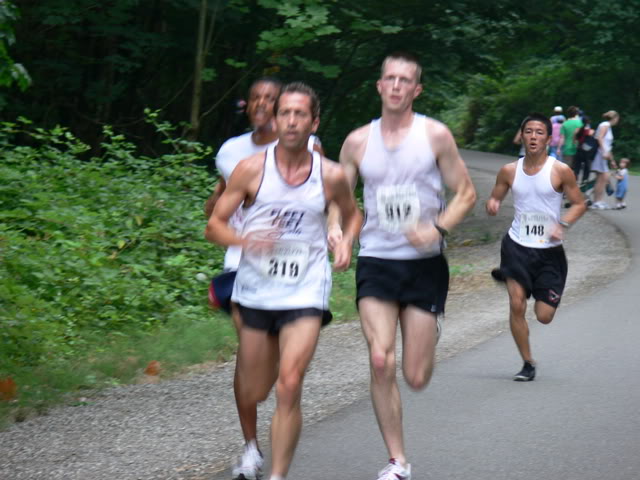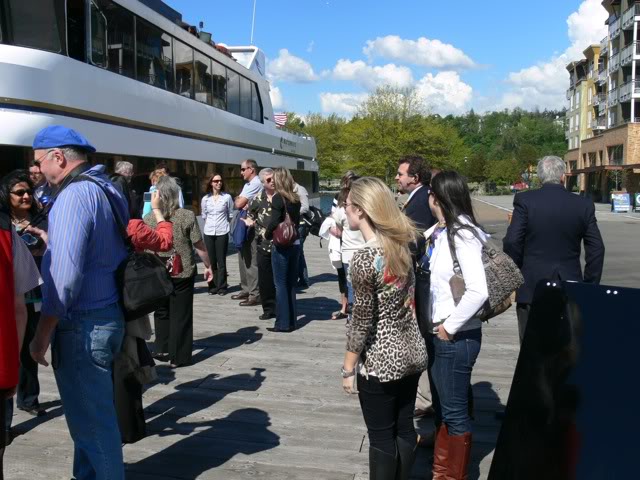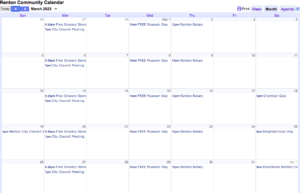
Approximately two miles of the Cedar River trail will be getting a center stripe to separate direction-of-travel lanes, new 10 MPH speed limits, and other improvements in an effort to improve safety for all users.
At last night’s Committee of the Whole meeting, the Renton Council received a briefing from a cross-divisional “trail safety” team that the Mayor had commissioned here. The team included specialists from recreation, transportation, police, and other departments. The briefing was also attended by many citizens from the community, including relatives of the hiker who was killed by a bicycle on the trail last month, representatives of the Cascade Bicycle Club, the editor of the Renton Reporter, and other interested parties.
The council largely agreed with the recommendation of the Mayor’s trail-safety team, and gave the administration support to move forward.
There are several items proposed for the trail as well as a public awareness campaign. Here are some of the most significant items in the proposal:
The two-mile section of the Cedar River Trail, from the library to the Railroad Trestle Park on Maple Valley Highway, will receive a dashed center-stripe to separate the two directions of travel. Walkers, joggers, skaters, horseback riders, an bike riders will all be asked to walk on the right hand side of the trail except when passing slower travelers; then, they can use the left side as needed to pass, but they must be wary of on-coming traffic. The pavement is 12 feet wide in this section, so it will be divided into two six foot lanes.
That section of the trail mentioned above will be marked for a lower maximum speed. A new maximum speed limit of 10 miles per hour will replace the existing speed limit of 15 miles per hour. (While this may be disappointing to some bicyclists, I calculate that this change only adds a maximum of three minutes of travel over the entire two mile stretch for the fastest riders, and has less impact for everyone else)
Solid center striping will be added to sections where passing is considered dangerous due to visibility obstructions (just as in the case of roads). Solid stripes will also be added to direct trail users away from bollards and other obstructions in the trail.
There will be a dismount zone (where any bikes must be walked) in the lower section of the trail between the Library and the Senior Center. This is a narrower section of trail, with poor visibility at the bridges. It was judged to be too unsafe for continued bike commuting. Bikes have the option to stay on the streets above this stretch.
There will be new trail etiquette signs posted, and brochures made available at the trail, to remind users about safe practices for enjoying the trail. This will include awareness for bicyclists that they must not exceed a safe speed, regardless of the maximum speed posted. Overtaking pedestrians requires care, and groups with children or animals will require special care as they can not always be expected to reliably stay on their side of the trail.
Additional enforcement will be employed to stress the new trail rules and give warnings or citations (as appropriate) to violators. Some of the enforcement will be from volunteers, and some will be from commissioned police officers. In addition, trail users will be reminded to contact 911 if they feel anyone is obviously violating rules or is otherwise a menace on the trail.
Council members had a few suggestions, potentially including extending the lane markings and lower speed limit to the east further and investigating the feasibility of interactive speed signs that would tell riders their speed. These suggestions were taken under review by the team. Since they are additive to the staff suggestions (not in conflict), staff could probably move forward with their plan while further studying the council suggestions. We’ll get another status on this soon.
In closing, I want to emphasize that it is important to our physical and mental well-being that we all get out and move as much as we can. I have great respect for all the trail users–walkers, joggers, skaters, bikers, etc– for making it a priority to exercise. Even with the inherent risks of getting out on a multi-use trail, the collective gains to our health, longevity, and state of mind make it worth it.







Recent Comments